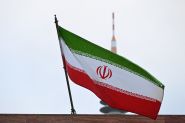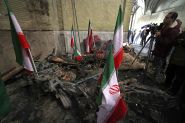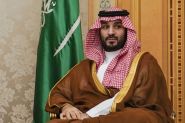- Home
- Middle East
- Qatar’s Diplomacy: Strengths and Limitations
Qatar has been shining for almost two decades on the regional and international levels, through its role as a mediator in several conflicts. How did this young and fragile state ascend in international politics?
For over a year now, Qatar has been acting as the principal mediator, alongside the United States and Egypt, in negotiations for a ceasefire in Gaza. The ongoing war between Israel and Hamas began on October 7, 2023.
However, this is not the first time this oil-rich Gulf emirate has emerged on the international stage. Qatar has established itself as a key mediator in numerous regional crises, especially the Israeli-Palestinian conflict.
Remarkably, it is almost the only actor capable of communicating with Israel, Islamist groups, Iran, and the United States simultaneously.
How can a country so small be so visible internationally and so active diplomatically?
Turning Weakness into Strength
The rapid rise of this young state on the international stage, having gained independence from British control in 1971, has intrigued the world. According to Karim Sader, a political scientist specializing in the Middle East and the Gulf, Qatar's feat lies in transforming its weaknesses — such as its small territory and hostile geographic environment — into strengths.
"Qatar's advantage is straightforward," observes Sader. "With an area of nearly 11,000 km² and barely 200,000 citizens, it has, in a way, no political accountability."
Due to its "completely closed political system," decision-making is personalized and confined to a small group, allowing it to bypass the delays of ministerial bureaucracy, making it swift and efficient. This gives Qatar "flexibility and maneuverability, facilitating its role as a mediator," says Sader, adding that "Qatar exemplifies that democracy is not always the best system."
For the consultant and professor at Université Saint-Joseph in Beirut, "Qatar understands that its very survival depends on mediation and being useful. It has realized that it can endure through its utility."
However, flexibility comes with paradoxes.
Qatar’s territory hosts the largest American base outside the US (al-Udeid), an Israeli trade office, and leaders from Islamist groups like Ismail Haniyeh and Khaled Mashaal.
This versatility has strengthened Qatar’s role, "endorsed by the West, which needed such a mediator." Qatar has the ability to engage with movements, particularly Islamist ones, that would be "inaccessible" for Western states. This is how "the United States succeeded in negotiating its withdrawal from Afghanistan with the Taliban," says Sader.
Economic Power and Soft Power Development
Nonetheless, the main strategic levers of Qatar’s foreign policy also rely on its considerable economic means and the development of soft power.
On one hand, Qatar holds the third-largest natural gas reserves globally and is the second-largest exporter of liquefied natural gas. On the other hand, thanks to an initiative by Hamad al-Thani, father of the current Prince, Tamim, Qatar has developed various soft power components, such as education, culture, sports, and communication. This is an influence strategy, creating sources of power internationally "through non-military, non-coercive means," explains Sader.
In this context, he notes that Al Jazeera's creation "revolutionized the media landscape in the region, significantly boosting Qatar’s image." He also points to the notable event of Qatar being the first Muslim country to host the FIFA World Cup in 2022, granting it immense international visibility.
"It is said that Emir Hamad believed being part of the International Olympic Committee was more important than being in the UN!" confides the political scientist.
2017-2021 Crisis: A Turning Point for Qatar
Qatar's hyperactive foreign policy led to an "over-visibility" that other regional powers viewed unfavorably. Qatar was soon criticized for "being the frog that wants to become as big as an ox," says Sader.
The rivalry with Saudi Arabia became evident.
For example, the Doha Agreement of 2008, which addressed the presidential crisis in Lebanon, was considered an attempt to overshadow the Taif Agreement, which Saudi Arabia initiated in 1989 to end the 15-year Lebanese civil war.
Qatar's diplomacy was also criticized for being "sometimes hasty and failing to resolve conflicts structurally," with a "checkbook diplomacy" approach, Sader adds.
Furthermore, Qatar’s stance during the Arab Spring revolutions, where it supported the Muslim Brotherhood’s rise to power, cost it dearly.
Saudi Arabia, the UAE, Bahrain, and Egypt accused it of supporting terrorism and decided to "sanction it by clipping its wings," according to Sader.
Thus, starting in June 2017, these Gulf states imposed an embargo on Qatar, effectively "cutting it off from the world."
It wasn’t until January 2021 that Kuwaiti and American mediations succeeded, and Saudi Arabia and its allies restored diplomatic relations with Qatar.
From Solo Play to Teamwork
Qatar may have taken a significant hit, but it emerged from the blockade "stronger domestically," notes Sader.
"The initial goal of Saudi Arabia and its allies was to bring about a regime change in Qatar, to control it, and end its ambitions," he explains.
Paradoxically, "Qatar withstood this pressure thanks to its economic resilience on one hand and diplomatic agility on the other," he continues. "It turned to other allies, such as Turkey, and Iran, its neighbor with which it shares an offshore gas field."
This experience ultimately "strengthened a sense of national identity within Qatar, centered around its Prince, Tamim bin Hamad al-Thani, who gained new national prominence," says the political scientist.
However, the Gulf states' message was clear, and Qatar is no longer the unrestrained player it once was. While maintaining its unique diplomatic balancing act, making it an indispensable player on the regional and international diplomatic scene, it no longer monopolizes action.
Currently, Qatar is seen working within the Group of Five ambassadors tasked with addressing the Lebanese presidential crisis, in coordination with other influential Arab and Western states.
"The terrain is increasingly competitive for Qatar, as other actors like Egypt and Jordan seek to influence Gaza's future. Other Gulf countries also want a say in reshaping the Middle East, a process seemingly driven by Israeli military actions and US policy," Sader concludes.
Read more




Comments